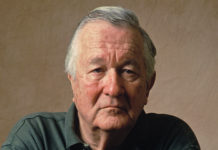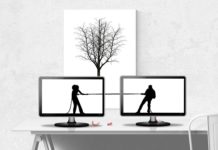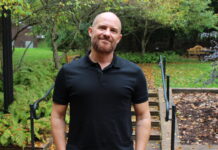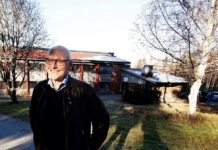Psychiatry, Fraud, and the Case for a Class-Action Lawsuit
For decades, psychiatry committed medical fraud when it told the public that antidepressants fixed a chemical imbalance in the brain.
Q&A: My Child’s School Is Pressuring Me to Give Him Stimulants
My eight-year-old son has trouble paying attention in school. He's always been very active and easily bored. The school had him evaluated by the school psychologist, who thinks he has ADHD. They are pressuring me to get him on stimulants and threatened to call Child Protective Services if I don’t. I feel very uncomfortable with this, but they seem to think it's the only answer. What should I do?
Angela Peacock – Medicating Normal
An interview with Angela Peacock who talks of her experiences of being prescribed benzodiazepines, her journey off multiple medications, her continuing work in veterans advocacy and her thoughts about the film Medicating Normal which will be screened on World Benzodiazepine Awareness Day, July 11.
David Healy – Polluting Our Internal Environments: The Perils of Polypharmacy
On the MIA Podcast, Dr David Healy discusses World Tapering Day, antidepressant treatment and sensory neuropathy and the difficulties that can be encountered when trying to deprescribe.
Going Deeper into “Madness”: ISPS 2015’s International Dialogue
As awareness spreads about there being something wrong with existing approaches to “psychosis” aka “madness.” Interest grows in exploring what to do instead. One meeting place for exploring this question of “what to do” will be the ISPS conference in NYC in March 2015, which is titled “An International Dialogue on Relationship and Experience in Psychosis.” This conference promises to stand out in terms of the variety of voices, perspectives, approaches and traditions that it will bring together to focus on the deeper issue of how helpers can best understand and interact with those experiencing what is called psychosis.
Suicidal Tendencies, Part I: I’m Suicidal Because I’m Mentally Ill Because I’m Suicidal
I can’t even begin to count the number of times I’ve heard “Research has found that about 90% of individuals who die by suicide experience mental illness.” Here’s what I believe it means in far too many instances: It’s an 'out.' It’s an easy answer that absolves us all of blame. If someone has a ‘sickness in the brain,’ then it doesn’t have to be our fault or even necessarily our concern.
Exploding the “Separated-at-Birth” Twin Study Myth
Supporters of the nature (genetic) side of the “nature versus nurture” debate often cite studies of “reared-apart” or “separated” MZ twin pairs (identical, monozygotic) in support of their positions. In this article I present evidence that, in fact, most studied pairs of this type do not qualify as reared-apart or separated twins.
Everyone’s Afraid of an Angry Woman: Honoring Sinéad O’Connor
In her tragic passing, I choose to honor her by raising up these words she said, by hearing and believing them.
Withdrawal from ADHD Medications
This guide to the scientific literature on withdrawal from ADHD drugs provides a review of animal studies, withdrawal syndromes,
and possible tapering protocols.
Twenty Years After Kendra’s Law: The Case Against AOT
The proponents of compulsory outpatient treatment claim that it leads to better outcomes for the recipients, and protects society from violent acts by the "seriously mentally ill." Those claims are belied by history, science, and a critical review of the relevant research.
Q&A: My Child is Being Bullied
I have a young son who is being verbally bullied by his peers. He is a sensitive child— thin, wears glasses, athletic and intelligent. I suspect the problem may be related to anti-Semitism. I feel like telling him that he needs to fight the bullies with his fists. His mother advises him to ignore the bullies and to concentrate on his studies. What would you advise?
Reflections on Being a Therapist
Three-and-a-half years ago I quit my career as a psychotherapist. I’d done it for ten years in New York City and had given it my all. It was a career that chose me, loudly, when I was 27 years old. I learned a huge amount from it and I believe I was helpful to a lot of people. It also represented a vital stage in my life. But then the time came to leave. That also came as a sort of revelation.
Do Antidepressants Work? A People’s Review of the Evidence
After a meta-analysis of RCTs of antidepressants was published in Lancet, psychiatry stated that it proved that "antidepressants" work. However, effectiveness studies of real-world patients reveal the opposite: the medications increase the likelihood that patients will become chronically depressed, and disabled by the disorder.
Einstein, Social Justice and The New Relativity
To create his theory of relativity, Einstein had to see things differently. He used imagination and empathy to come to know a new 'reality' of existence. In this essay, we delve deeply into the nature of human experiences that lead to public concern and discover ourselves in a whole new realm.
William Styron: His Struggles with Psychiatry and Its Pills
Author William Styron is often remembered for speaking about depression as an illness. But a review of his life reveals that psychiatric drugs may have triggered and even worsened his depressive episodes.
Psychology is Not What You Think: An Interview with Critical Psychologist Ian Parker
MIA’s Ayurdhi Dhar interviews Ian Parker about critical psychology, discourse and political action, and whether psychology has anything left to offer.
Q&A: Dad Is Coercing Son to Get Off Meds
My son was diagnosed with schizophrenia five years ago and now lives in a residential facility with a holistic treatment approach. However, his father has repeatedly and aggressively tried to coerce him to get off medication. My son and his provider have repeatedly asked him to stop, and the stress of his father’s pressure is setting him back. What should we do?
Ernst Rüdin: The Founding Father of Psychiatric Genetics
In a 2013 edition of the Journal of the History of Biology, Norbert Wetzel and I published an article on the Swiss-German psychiatric geneticist Ernst Rüdin (1874-1952) and his close colleagues, and how their work and crimes in the Nazi era have been discussed or ignored by contemporary psychiatric genetic writers and researchers. Here I would like to summarize the main points we raised in that article, and to make several additional observations. Whether Rüdin reluctantly aided and helped implement the “euthanasia” killing program in support of the war effort, or more likely, that he saw it as the crowning achievement of his decades of psychiatric genetic research based on racial hygienic (eugenic) principles, is an issue that may be decided in the future.
Is Madness an Evolved Signal? Justin Garson on Strategy Versus Dysfunction
Philosopher Justin Garson discusses the potential benefit of looking at madness not as disease or defect, but as a designed feature.
A Revolution Wobbles: Will Norway’s “Medication-Free” Hospital Survive?
We interview Ole Andreas Underland, Director of the Hurdalsjøen Recovery Center in Norway which provides “medication-free” care for those who want such treatment or who want to taper from their psychiatric drugs. Ole Andreas explains why the success of this pioneering approach might threaten its future.
Healthy Planet/Healthy Mind with Zach Bush, MD
Business as usual — big farming, big pharma and conventional healthcare — is threatening our planet and our very ability to survive as a species. Planetary and human health are at a tipping point. Solutions informed by the science of environmental health, epigenetics and the microbiome, are elegantly simple, but their impact is profound.
Robert Spitzer on DSM-III: A Recently Recovered Interview
Robert Spitzer, chair of the Task Force for DSM-III, discusses his decisions on inclusion, exclusion, expansion, and renaming disorders in the manual.
The Use of Neuroleptic Drugs As Chemical Restraints
On July 17, I wrote a post on the use of neuroleptic drugs as chemical restraints in nursing homes. The article generated some comments, one of which touched on some very fundamental issues which, in my view, warrant further discussion. The comment read as follows: "All drugs can be dangerous toxic chemicals when not used appropriately. While many valid points are made in this article, it’s very one-sided and could be considered biased in that it’s written by a psychologist. I’ve seen many patients and families benefit from their use."
When ‘For Your Own Good’ Actually Means ‘For My Own Good’
“For your own good” is oppressive. Embedded in that four-word phrase is the idea that each of us doesn’t understand who we are or what we need. Someone else is the expert. Someone else has the privilege to hold all the answers, and if those answers don't work for us then somehow it's our fault.
Lessons from Soteria-Alaska
Yes, Soteria-Alaska is closing. And its sister organization, CHOICES, Inc., has lost its way. As the person who conceived of both of these and got them going, I have some thoughts that might be worthwhile about what went wrong; what should or might have been done differently; and most importantly, what lessons might have been learned.




























